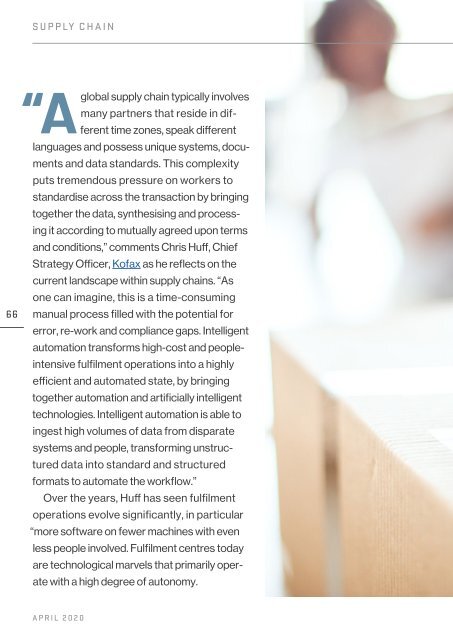Business Chief Americas April 2020
You also want an ePaper? Increase the reach of your titles
YUMPU automatically turns print PDFs into web optimized ePapers that Google loves.
SUPPLY CHAIN<br />
66<br />
“A<br />
global supply chain typically involves<br />
many partners that reside in different<br />
time zones, speak different<br />
languages and possess unique systems, documents<br />
and data standards. This complexity<br />
puts tremendous pressure on workers to<br />
standardise across the transaction by bringing<br />
together the data, synthesising and processing<br />
it according to mutually agreed upon terms<br />
and conditions,” comments Chris Huff, <strong>Chief</strong><br />
Strategy Officer, Kofax as he reflects on the<br />
current landscape within supply chains. “As<br />
one can imagine, this is a time-consuming<br />
manual process filled with the potential for<br />
error, re-work and compliance gaps. Intelligent<br />
automation transforms high-cost and peopleintensive<br />
fulfilment operations into a highly<br />
efficient and automated state, by bringing<br />
together automation and artificially intelligent<br />
technologies. Intelligent automation is able to<br />
ingest high volumes of data from disparate<br />
systems and people, transforming unstructured<br />
data into standard and structured<br />
formats to automate the workflow.”<br />
Over the years, Huff has seen fulfilment<br />
operations evolve significantly, in particular<br />
“more software on fewer machines with even<br />
less people involved. Fulfilment centres today<br />
are technological marvels that primarily operate<br />
with a high degree of autonomy.<br />
APRIL <strong>2020</strong>

















